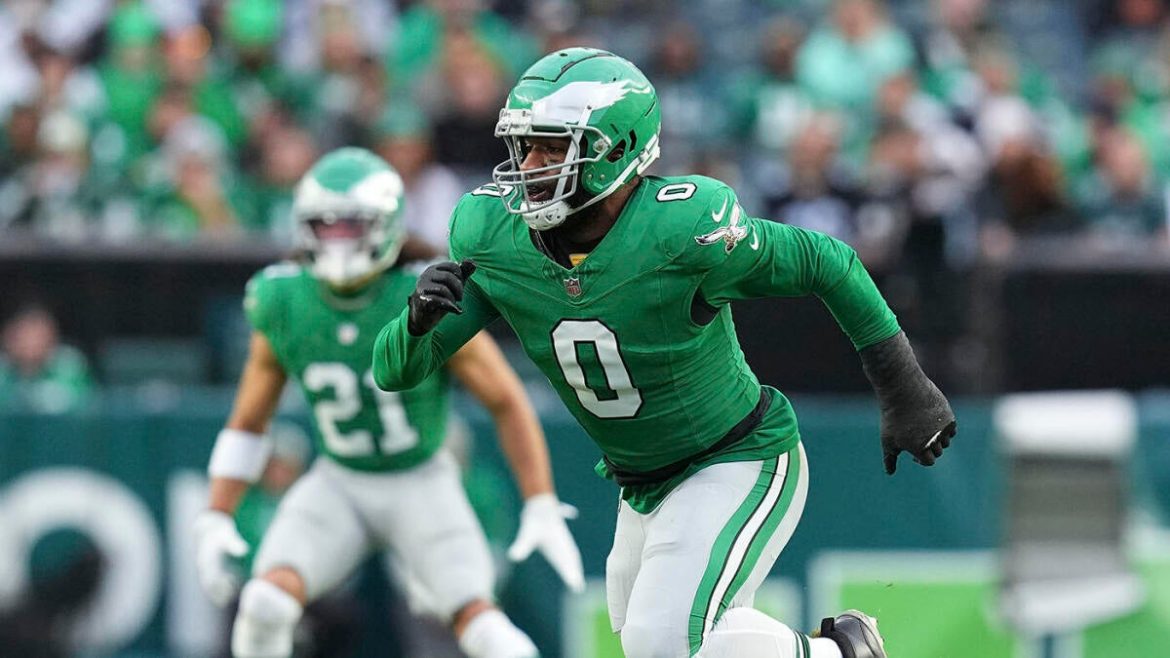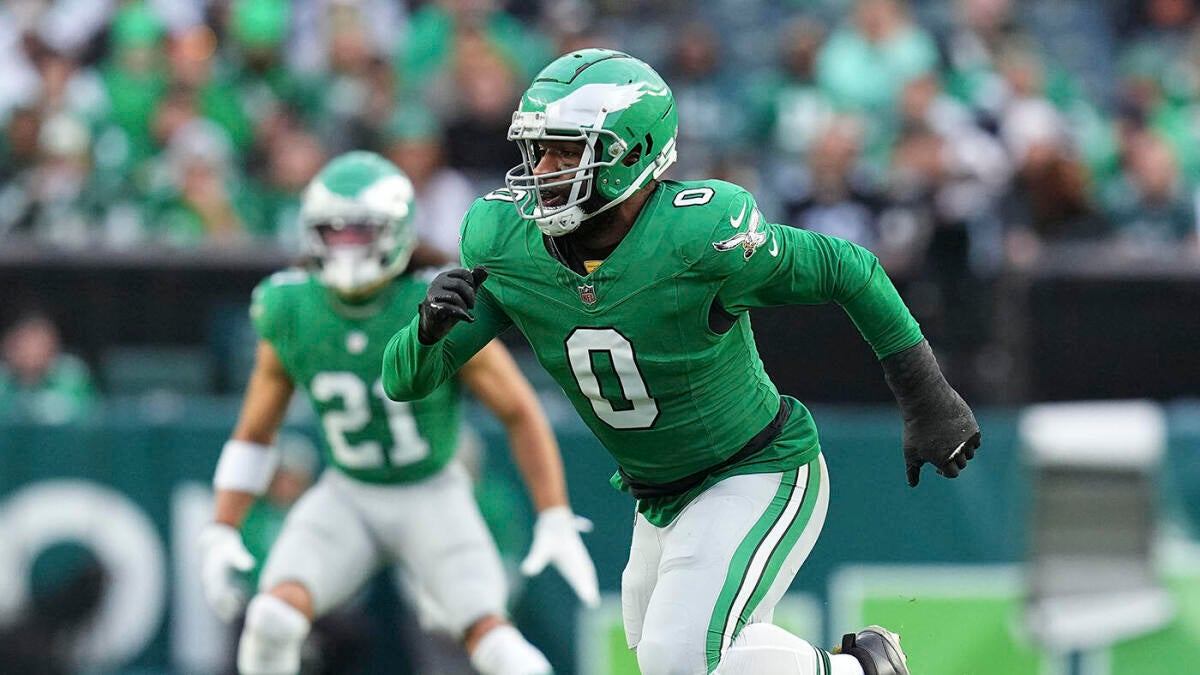The recent trade of defensive end Bryce Huff from the Philadelphia Eagles to the San Francisco 49ers has generated notable discussion across NFL circles, inviting analysis of its implications for both teams. Huff, an edge rusher with promising statistics in preceding seasons, was traded for a mid-round draft pick, with financial responsibilities shared between the teams. Exploring the details of this transaction sheds light on team strategies, contract management, and player utilization in the evolving NFL landscape.
Background: Bryce Huff’s Journey and Performance
Bryce Huff joined the Eagles last offseason on a significant three-year, $51 million contract, positioning him as a cornerstone of their pass rush rotation. Prior to Philadelphia, Huff showcased strong performances with the New York Jets, particularly in 2022 and 2023, where he consistently earned high pass rush grades from Pro Football Focus and led the NFL in pass-rush rate during the 2023 season at 21.8%, per Next Gen Stats. These metrics underscored his potential as an elite edge rusher poised to bolster any defensive front.
However, Huff’s tenure with Philadelphia was brief and marked by limited on-field starts—only six games in 2024—leading to a diverging narrative regarding his fit within the Eagles’ defensive scheme. This culminated in the decision to trade Huff away after just one season, an unexpectedly swift turnaround considering the investment made.
The Trade Details and Financial Implications
The 49ers’ acquisition involved sending a mid-round draft pick to the Eagles and assuming part of Huff’s contract. Crucially, although Huff’s 2025 salary was fully guaranteed at approximately $16.75 million, the Eagles agreed to shoulder $9.05 million of this amount as a bonus payout, leaving the 49ers accountable for the remaining $7.95 million. This arrangement reflects a strategic financial maneuver by the Eagles, alleviating significant salary cap pressure while still capitalizing on draft capital.
Moreover, Huff’s familiar connection to the 49ers’ coaching staff, notably defensive coordinator Robert Saleh—his head coach during his Jets tenure—adds an intangible benefit to San Francisco. This familiarity could smooth his integration and optimize his performance in a system already aligned with his strengths.
Impact and Assessment for the Philadelphia Eagles
For the Eagles, transporting Huff out signals a shift in defensive philosophy and roster optimization. Despite the substantial contract, Huff did not meet expectations, which prompted this trade to mitigate financial strain and make room for potentially more compatible edge rushers. Early indications are that the Eagles will prioritize rotation players such as Nolan Smith, Jalyx Hunt, and recent acquisitions Azeez Ojulari and Josh Uche to fill the void. The trade thus serves a dual purpose: freeing cap space and facilitating a more cohesive defensive pass rush strategy.
From a management perspective, the trade is seen as a corrective move to refine the roster after what some regarded as a “failed free agent signing.” The return of a mid-round draft pick allows for future talent cultivation or use in further trades, sustaining team flexibility. While some view the trade as cutting losses, it also exemplifies proactive asset management and adaptation in a competitive NFL environment.
Benefits and Prospects for the San Francisco 49ers
The 49ers acquired a proven pass rusher with a recent track record of excellence at an ostensibly reasonable cost, given the shared salary burden with the Eagles. The acquisition addresses a critical positional need, adding depth and potential explosiveness to their defensive front. Huff’s top-tier performance metrics, coupled with his existing rapport with the coaching staff, forecast a seamless transition and an opportunity for immediate impact.
Media analyses have graded the trade positively for the 49ers, highlighting the value received in compensation for a mid-round pick and manageable cap hit. This move signals a bold commitment to enhancing pass-rushing capability, which could have significant ramifications on the 49ers’ defensive durability and pressure-generating capacity in upcoming seasons.
Broader Implications and Team Dynamics
The Huff trade encapsulates several broader themes in NFL team-building. It underscores the challenges of integrating high-cost free agent acquisitions within existing lineups and the importance of contract flexibility. Further, it illustrates how familiarity between player and coach can influence trade decisions, serving as a catalyst for player resurrection in new environments.
For the Eagles, this deal represents a recalibration, balancing cap space and roster optimization to maintain competitiveness. For the 49ers, it embodies a strategic upgrade designed to capitalize on a player’s proven abilities within a supportive, familiar framework.
Conclusion: Strategic Moves Define Modern NFL Success
The Bryce Huff trade exemplifies the dynamic nature of NFL roster management where financial considerations, performance metrics, and organizational fit intersect. Philadelphia’s decision to trade a high-profile but underperforming free agent and take on salary commitments reflects a pragmatic approach to team-building, emphasizing flexibility and long-term planning. Meanwhile, the 49ers’ willingness to invest in Huff and share financial obligations reveals an assertive bid to enhance on-field competitiveness through targeted acquisitions.
As Huff integrates into San Francisco’s defense, his performance will be a litmus test for both the trade’s success and the strategic philosophies of these franchises. The trade serves as a vivid example of how teams leverage player value, contract structures, and coaching relationships to sculpt rosters adaptable to immediate needs and future aspirations—cornerstones for enduring NFL success.





